Dental Implant in United Arab Emirates
Search and Compare the Best Clinics and Doctors at the Lowest Prices for Dental Implant in United Arab Emirates
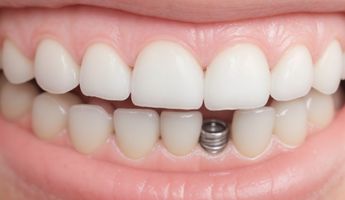
Find the best clinics for Dental Implant in United Arab Emirates
With Medijump you can browse 24 facilities offering Dental Implant procedures in United Arab Emirates. The cheapest price available is $544 in Abu Dhabi. And for the cheapest price globally, prices start from $1 in Vietnam.
Dental Implant in Abu Dhabi
Price: $ 544
Dental Implant in Sharjah
Price: $ 953
Vietnam offers the best prices Worldwide
Price: $ 1
Lifeline Hospital, located in Jabal Ali 3, Dubai, United Arab Emirates offers patients Dental Implant procedures among its total of 87 available procedures, across 14 different specialties. The cost of a Dental Implant procedure starts from $1,909, whilst the national average price is approximately $1,457. There are many specialists available at the Hospital, with 10 in total, and they are not accredited by any recognized accreditations institutes
Purecare Medical Center, located in Al Zahiyah, Abu Dhabi, United Arab Emirates offers patients Dental Implant procedures among its total of 12 available procedures, across 1 different specialties. The cost of a Dental Implant procedure ranges from $544 to $1,906, whilst the national average price is approximately $1,457. There are many specialists available at the Dental, with 4 in total, and they are not accredited by any recognized accreditations institutes
Elitecare Medical Center, located in Al Dhafrah, Abu Dhabi, United Arab Emirates offers patients Dental Implant procedures among its total of 5 available procedures, across 2 different specialties. The cost of a Dental Implant procedure ranges from $817 to $1,361, whilst the national average price is approximately $1,457. There are many specialists available at the Clinic, with 10 in total, and they are accredited by DHA - Dubai Health Authority
Al Salama Hospital, located in Al Zahiyah, Abu Dhabi, United Arab Emirates offers patients Dental Implant procedures among its total of 98 available procedures, across 16 different specialties. Currently, there's no pricing information for Dental Implant procedures at Al Salama Hospital, as all prices are available on request only, whilst the national average price is approximately ฿52,442. There are many specialists available at the Hospital, with 10 in total, and they are not accredited by any recognized accreditations institutes
- Home
- United Arab Emirates
Compare Before & After Photos of _procedure_photos.phpDental Implant

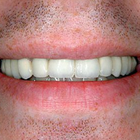
Front view


Front view
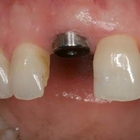
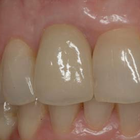
Front view
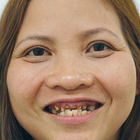

Front view
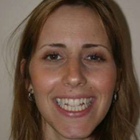
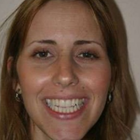
Front view
WHY US?
At Medijump, we're making medical easy. You can search, compare, discuss, and book your medical all in one place. We open the door to the best medical providers worldwide, saving you time and energy along the way, and it's all for FREE, no hidden fees, and no price markups guaranteed. So what are you waiting for?

Free

Best Price

Widest Selection

Risk-Free
What you need to know about Dental Implant in United Arab Emirates

A dental implant is a medical device that provide support to artificial teeth. It's surgically placed into the jaw to act as a replacement for the root of a missing or damaged tooth, which in turn serves to hold a replacement tooth or bridge. It functions and looks much like a real tooth, restoring your ability to chew and improves your overall appearance. Dental implant surgery is considered as a better alternative to dentures or bridgework that does not fit well. It also offers a great option for people when they do not have enough natural teeth roots left to build denture or bridgework replacements.
Since dental implants eventually fuse with your jawbone over the span of several months, it won’t make noise, slip, or cause bone damage the way dentures or bridgework might. Dental implants also enable natural speech, look and feel like your own teeth, make eating easier, and improves your appearance. However, the surgery may involve several stages, and, in some cases, it may require two separate visits to the clinic to complete. Ensure to look for a specialist in a reputable clinic for the best results.
What is the cost of Dental Implant in United Arab Emirates?
Price differences abound in United Arab Emirates for Dental Implant based on the clinic, the proficiency of the surgeon, and the individual requirements of the patients. It's essential to realize that dental insurance usually doesn't cover the entire bill for this treatment, though it might cover a part. Several dental clinics provide finance schemes or payment alternatives to assist in easing the financial burden. For more precise cost estimates, reach out to your dental service provider or a nearby clinic.
What does a Dental Implant Procedure Involve?
Dental implant surgery generally requires several stages. Each stage may be performed under general or local anesthetic. The first stage is removing the damaged tooth. Then, if your jawbone is too soft or not thick enough, your dentist may perform bone grafting to create a more solid base for the implant. The bone graft may be natural (taken from another part of your body) or synthetic (a bone-substitute material). If you only need minor bone grafting, the implant surgery can be performed on the same day. However, if you need a significant amount of bone graft, the implant surgery may have to be postponed until the transplanted bone grows enough new bone to support the dental implant.
The next stage after the damaged tooth removal and bone graft (if you need one) is placing the dental implant. To do this, your dentist makes an incision to expose the bone and puts the metal implant post deep into the bone. At this stage, you will still have a gap where your tooth is missing. Your dentist will place a temporary denture for appearance. Once the metal implant post is placed, osseointegration begins. This is a process where the jawbone grows into the surface of the implant and can take several months to complete. After osseointegration is complete, your dentist will place the abutment, which is a small connector post that will hold your new tooth. The final stage, after the abutment is placed, is placing the crown, which is the tooth-looking part. You can choose between a removable crown and a fixed crown.
How Long Should I Stay in United Arab Emirates for a Dental Implant Procedure?
The length of your stay in United Arab Emirates for a Dental Implant depends on numerous considerations like the intricacies of the procedure, the quantity of implants required, and your personal recovery process. Each stage of dental implant surgery is done in separate appointments. After each appointment, you should be able to leave the hospital or clinic right away. However, you should stay in United Arab Emirates for at least 2 weeks for completion of the work, the initial recovery time, and follow-up checkups.
What's the Recovery Time for Dental Implant Procedures?
The recuperation duration following a Dental Implant or dental implant operation can widely vary and is shaped by multiple aspects. Initial healing of the tissue might require only a handful of days, but complete osseointegration (the fusion of the implant with the jawbone) generally spans several months. This window could be extended for patients requiring auxiliary procedures such as bone grafts, or those with prevailing health issues that may impede the healing process.
Post-procedure, it's not unusual to experience a degree of discomfort, which could manifest as minor pain, swelling of your gums and face, skin and gum bruising, and slight bleeding. Such symptoms are a standard phase of the recovery process and should alleviate within a fortnight. In this interim, it's advisable to stick to a soft diet to not overload the implant site with undue pressure. Any strenuous physical exertion should be put off to circumvent potential complications.
Maintaining excellent oral hygiene is paramount to facilitate healing and stave off infection. Regular brushing and flossing, being particularly gentle around the surgical area, coupled with rinsing your oral cavity with warm saline water, can contribute to keeping the region hygienic.
What sort of Aftercare is Required for Dental Implant Procedures?
After each stage of surgery, you may have to eat soft foods. Since you may experience swelling, bruising, pain, and minor bleeding, your dentist will prescribe pain medications or antibiotics to help ease your discomfort. During your recovery period, you need to avoid smoking as it can contribute to implant failure and complications.
No special care is required for dental implants. Nonetheless, you need to practice good oral hygiene in order to maintain the implant and your remaining natural teeth. Make sure to brush your teeth twice a day, floss daily, and rinse your mouth with an antiseptic mouthwash. You also need to see your dentist regularly and avoid damaging habits, such as chewing hard items.
What's the Success Rate of Dental Implant Procedures?
The efficacy of Dental Implant, alternatively referred to as dental implants, in United Arab Emirates, is typically impressive, boasting effectiveness percentages as high as 98% in some studies. This positions dental implants as one of the most reliable procedures within dental care's realm. Nevertheless, it's worth mentioning that the success rates might fluctuate, influenced by several factors.
The patient's overall health is a key determinant of the thriving outcome of a dental implant procedure. Individuals exhibiting optimal health usually witness higher success rates. Pre-existing health issues like diabetes, osteoporosis, and periodontal ailments can theoretically impact the efficacy of the implant.
Additional contributing factors to the success rate encompass the quality and abundance of the individual's bone structure. Patients boasting plentiful, healthy bone are ordinarily the perfect candidates for dental implants. However, those who have experienced bone loss might need to undergo a bone grafting procedure before the implant procedure. This step can provide a robust base for the implant and enhance the chances of a successful result.
Are there Alternatives to Dental Implant Procedures?
If you are not a candidate for dental implant surgery, or you simply do not want to undergo the procedure, you can opt for the alternatives. The alternatives include:
- Mini dental implants, which is a small type of dental implants. The structure is similar to regular dental implants, but are somewhat smaller in size. Unlike regular dental implants, dentists can often place mini implants only in one visit using local anesthesia. You may also be able to use your new teeth on the same day.
- A same-day implant is essentially similar to traditional dental implants. However, your dentist performs the whole process in just one day, skipping the process of wound healing and osseointegration.
- Implant-supported dentures or All-on-4 is an alternative if you need to fix a complete upper or lower set of teeth. During this procedure, four to six implants are placed into your jawbone as a base to attach and stabilize your denture.
What Should You Expect Before and After the Dental Implant Procedure?
Grasping what lies ahead before and post the Dental Implant can lessen potential worries and guarantee you are fully equipped for the upcoming journey. Prior to the procedure, your dental practitioner will conduct an all-inclusive dental assessment. This check-up may encompass dental X-rays and sophisticated 3D imaging to examine the status of your oral cavity.
The dental professional will also explore your medical history. If you're suffering from specific heart disorders or orthopedic implants, your dental practitioner might suggest antibiotics to avert infection. A personalized treatment blueprint, customized to your circumstances, will be constructed. This strategy takes into account factors like the amount of teeth you need substituted and the state of your jawbone. The procedure is typically carried out under local anesthesia to mitigate any discomfort.
Subsequent to the operation, experiencing slight unease is usual. You might witness inflammation of your face and gums, discoloration of your skin and gums, soreness at the insertion area, and insignificant bleeding. Your dental specialist will recommend medications to soothe these indicators. In case inflation, unease, or any other complications intensify in the days post-operation, it's crucial to reach out to your oral surgeon. Post-operation will require you to consume mushy foods as the operated site recovers. Moreover, you'll be guided to abstain from smoking, as it can hinder recovery and influence the triumph of the dental implant.
Following the positioning of the implant, the healing process, and fusion with the bone (osseointegration) transpire over an extended period. During this interval, maintaining robust oral cleanliness is vital. This involves frequent brushing, the use of dental floss, and cleansing with an antibacterial mouthwash. Periodic dental examinations are obligatory to track progress and confirm the well-being and effectiveness of the implant.
What are Potential Risks of Dental Implant?
Despite Dental Implant boasting remarkable effectiveness, it is, as any surgical operation, not without risks and potential difficulties. The chances of encountering these issues are often minute and irregularities are infrequent, yet it remains critical for patients to comprehend these possibilities before undertaking the procedure.
Complications and side effects may include:
- Implant failure
- Nerve injury
- Infection
- Sinus problems
- Damage to surrounding structures, such as other teeth or blood vessels
How long does a Dental Implant last?
The durability of a Dental Implant is heavily reliant on the individual's oral cleanliness and general wellbeing. Nonetheless, with appropriate upkeep and care, dental implants have the potential to stand the test of time. The titanium pillar inserted into the jawbone during surgery is crafted to be everlasting, while the dental cap fastened to the anchor may necessitate substitution every decade or decade and a half due to normal usage. Yet, with outstanding dental management and habitual screenings, the cap has the potential for lifelong endurance.
Whilst the information presented here has been accurately sourced and verified by a medical professional for its accuracy, it is still advised to consult with your doctor before pursuing a medical treatment at one of the listed medical providers
No Time?
Tell us what you're looking for and we'll reachout to the top clinics all at once
Enquire Now

Popular Procedures in United Arab Emirates
Prices Start From $1

Prices Start From $1

Prices Start From $48

Prices Start From $1

Prices Start From $1

Prices Start From $11

Prices Start From $1

Prices Start From $45

Recommended Medical Centers in United Arab Emirates for Dental Implant

- Interpreter services
- Translation service
- Religious facilities
- Medical records transfer
- Medical travel insurance
- Health insurance coordination
- TV in the room
- Safe in the room
- Phone in the room
- Private rooms for patients available

- Interpreter services
- Translation service
- Religious facilities
- Medical records transfer
- Medical travel insurance
- Health insurance coordination
- TV in the room
- Safe in the room
- Phone in the room
- Private rooms for patients available

- Interpreter services
- Translation service
- Religious facilities
- Medical records transfer
- Medical travel insurance
- Health insurance coordination
- TV in the room
- Safe in the room
- Phone in the room
- Private rooms for patients available

- Interpreter services
- Translation service
- Religious facilities
- Medical records transfer
- Medical travel insurance
- Health insurance coordination
- TV in the room
- Safe in the room
- Phone in the room
- Private rooms for patients available

- Interpreter services
- Translation service
- Religious facilities
- Medical records transfer
- Medical travel insurance
- Health insurance coordination
- TV in the room
- Safe in the room
- Phone in the room
- Private rooms for patients available

- Interpreter services
- Translation service
- Religious facilities
- Medical records transfer
- Medical travel insurance
- Health insurance coordination
- TV in the room
- Safe in the room
- Phone in the room
- Private rooms for patients available

- Interpreter services
- Translation service
- Religious facilities
- Medical records transfer
- Medical travel insurance
- Health insurance coordination
- TV in the room
- Safe in the room
- Phone in the room
- Private rooms for patients available

- Interpreter services
- Translation service
- Religious facilities
- Medical records transfer
- Medical travel insurance
- Health insurance coordination
- TV in the room
- Safe in the room
- Phone in the room
- Private rooms for patients available

- Interpreter services
- Translation service
- Religious facilities
- Medical records transfer
- Medical travel insurance
- Health insurance coordination
- TV in the room
- Safe in the room
- Phone in the room
- Private rooms for patients available

- Interpreter services
- Translation service
- Religious facilities
- Medical records transfer
- Medical travel insurance
- Health insurance coordination
- TV in the room
- Safe in the room
- Phone in the room
- Private rooms for patients available
Dental Implant in and around United Arab Emirates
About the United Arab Emirates
The United Arab Emirates consists of seven emirates and they are Dubai, Abu Dhabi, Sharjah, Ajman, Ras al-Khaimah, Fujairah, and Umm al-Quwain. Abu Dhabi is the richest Emirates due to its oil fields. The UAE population is close to 10 million people.
Shopping is often considered to be the most popular tourist activity in the UAE, certainly for Dubai and Abu Dhabi. there is no denying that going to a mall or souk is a great way of soaking up the local culture, Low prices are often due to the low rate of 5% VAT. There are various shopping festivals throughout the year, especially in Dubai and Abu Dhabi.
The UAE has become a worldwide destination for medical tourists due to its wide range of state-of-the-art technology, affordable treatments, and highly specialized doctors. UAE has already witnessed a sizeable increase in medical tourists who are drawn to the country for treatments ranging from major surgeries to rehabilitation and cosmetic corrections.
The country has been focusing on increasing its healthcare infrastructure in terms of quality as well as quantity, in line with its global aspirations for medical tourism According to Medical Tourism statistics, UAE ranks in 5th place, The country has close to 40 hospitals when compared to only having 7 in 1970. The Government has mandated all companies to provide all their employees with health insurance
In the United Arab Emirates medical education and research foundations such as Al Jalila Foundation, Centre of Arab Genomic Studies, Red Crescent Society of UAE, and Sahi School Health Programme aim to provide the best hospitals and create the best-skilled professionals in the country. With high-quality hospitals such as American Hospital Dubai, Lifeline Hospital, Emirates Hospital, Rashid Hospital, and others, Dubai caters to ailments such as Ophthalmology, Orthopaedic, Rheumatology, Dermatology, Cosmetic and Plastic surgery.
Here are three good reasons why the UAE is the best place to go for medical tourism.
-
The UAE has over 200 JCI-Accredited Hospitals and Clinics.
-
The treatment modules, both surgical and non-surgical are cutting edge and certified.
-
UAE has the best post-operative care in this part of the world.
Popular parts of the UAE
This nation is a fascinating fusion of the contemporary world and deeply rooted Islamic customs, creating a unique cultural tapestry that is a delight to explore. There are numerous notable structures that dot the landscape, beckoning those with an adventurous spirit to embark on unforgettable tours and soak in the rich architectural heritage of the region. The presence of botanical gardens enhances the country's natural beauty, providing tranquil spots amidst the rush of city life where one can take a leisurely stroll, enjoy a picnic, or simply sit and watch the world go by.
For those seeking an adrenaline rush, the country does not disappoint with its array of world-class amusement parks. These colorful wonderlands offer high-octane roller coasters, immersive virtual reality games, and lively entertainment shows which are bound to delight children and adults alike. In contrast, the country's stunning mosques stand as serene symbols of its deep religious underpinnings; their intricate design, ornate calligraphy, and contemplative atmosphere invite visitors to marvel at their grandeur and gain a deeper appreciation for the Islamic culture.
-
Burj Khalifa- Is the tallest building in the world at over 800 meters, and is one of the most impressive sights in Dubai. Tourists can go up to the 124th and 125th floors of the Burj Khalifa. These floors have a circular observation deck and the panoramic view from here is a sight to behold and the view stretches from sea to desert.
-
Burj Al Arab is best known for being the only 7-star hotel in Dubai and is located in the Burj Khalifa building
-
Sheikh Zayed Grand Mosque is one of the most beautiful attractions in Abu Dhabi and is an architectural masterpiece. The mosque is made of marble, and the walls and floors are embedded with colorful stones depicting flowers.
-
Ferrari World in Abu Dhabi is a must-visit attraction. The Ferrari-themed park is home to the fastest roller coaster in the world, Formula Rossa, which accelerates to 240km/hr in as short as five seconds.
-
The Palm Jumeirah is the biggest artificial island in the world and ensures that you visit one of its high-end restaurants and bars or stay in one of its 5-star hotels,
Weather and Climate in the UAE
The winter months of December through February offer a pleasantly warm climate in this region, with temperatures averaging between 24 °C and 26 °C. There are times, particularly in January, when cool northern air fronts make the days chilly and windy.
Scorching heat characterizes the summer season, from May to September, with daytime temperatures soaring between 38 °C and 42 °C. Warm winds from the Persian Gulf sweep in, carrying humidity from the sea. This makes April and October quite hot as well, with peaks around 33/36 °C. During the most intense summer days, temperatures can skyrocket to 47/48 °C along the country's splendid coastline.
The country experiences strong winds all through the year, but they become particularly forceful in the springtime. These winds occasionally lead to sand and dust storms, blanketing the landscape in a desert haze.
Getting around in UAE
The UAE boasts some of the world's most bustling airports with airplanes launching into the skies every five minutes. Out of all these, Terminal four of Dubai International Airport stands out as the busiest.
Travelling within the city is made simple with Dubai's extensive five metro line service. It serves as an excellent mode of transport to explore the city, offering easy access to a majority of landmarks and sought-after locations in Dubai.
Visitors also have the option of renting a luxury automobile for a personal driving experience around the city. However, before getting behind the wheel, ensure you possess an international driving license and the necessary insurance documentation as mandated by UAE's laws and guidelines. Considered the safest mode of transportation in the UAE, taxis are widely available. Tourists have two options: simply hailing one on the street or conveniently booking through a smartphone taxi app.
Tourist visas in the UAE
You can get a non-extendable visit visa or a tourist visa for 30 days or 90 days. Many job seekers use visitor visas to find work and convert their visitor visa to a work visa during their stay. Citizens of GCC countries and the European Union, USA, and the UK, Canada, Russia, China, Australia, and many other countries can get a visa on arrival. However, all passports must be valid for at least six months from the date of entry.
Visa on Arrival:
The visa on arrival facility is a convenient option for eligible citizens, eliminating the need for pre-arranged visas. Upon arrival at a UAE airport, simply proceed to the immigration counter, where your passport will be stamped with a visa.
Visa Conversion for Employment:
If you successfully find employment during your stay on a visitor visa, you can initiate the process of converting your visa to a work visa. This process typically involves sponsorship from your employer and may require additional documentation.
Additional Information
-
Local Currency: The currency of the UAE is the Dirhams, abbreviated as DH or Dh. Each dirham is further simplified into 100 fils. There are currency notes of various denominations ranging from Dh 5 to Dh 1000. The currency features Arabic on the front and English on the back. One US dollar will fetch you 3.67 dirhams and the rate does fluctuate.
-
Money and Payment: All retail businesses and restaurants accept credit cards and cash. ATMs and currency exchanges are conveniently located across the country. There are bank counters in various malls that will readily exchange your currency. Tipping is only at ten percent of the Service or good charges and is optional.
-
Local Language: UAE is very cosmopolitan and therefore the local population understands a lot of languages including English. There are also translator services available everywhere at cheap rates. Arabic is a widely spoken language throughout the UAE.
-
Local culture and religion: Islam is the state religion. However, society is very diverse and it is one of those countries in the world where the migrant population is 80% plus which far exceeds the local nationals. Any person of any nationality, whether based overseas or a resident of Dubai, can purchase in Dubai's freehold property market in designated areas
-
Public holidays: Ramadhan is the biggest festival and Shops and malls are beautifully decorated all through the thirty days of fasting. The other public holidays is the Islamic New Year, the Prophet’s Birthday, and the King’s Coronation day. People also celebrate other festivals like the Hindu festival of Diwali and the Chinese New Year in the spirit of humanity and brotherhood.
Popular Searches
- Plastic Surgery in Thailand
- Dental Implants in Thailand
- Hair Transplant in Thailand
- Breast Augmentation Thailand
- Gastric Sleeve in Thailand
- Gender Reassignment Surgery in Thailand
- Laser Hair Removal in Bangkok
- Botox in Bangkok
- Dermatology in Bangkok
- Breast Augmentation in Bangkok
- Coolsculpting in Bangkok
- Veneers in Turkey
- Hair Transplant in Turkey
- Rhinoplasty in Turkey
- Stem Cell Therapy in Mexico
- Rhinoplasty in Mexico
- Liposuction in Mexico
- Coolsculpting in Tijuana
- Rhinoplasty in Korea
- Scar Removal in Korea
- Gastric Sleeve in Turkey
- Bone Marrow Transplant in India
- Invisalign in Malaysia
- Plastic Surgery in the Dominican Republic
- Tummy Tuck in the Dominican Republic
- Plastic and Cosmetic Surgery in Poland
- Rhinoplasty in Poland
- Hair Implant in Poland
- Dental Implants in Poland
- IVF in Turkey



